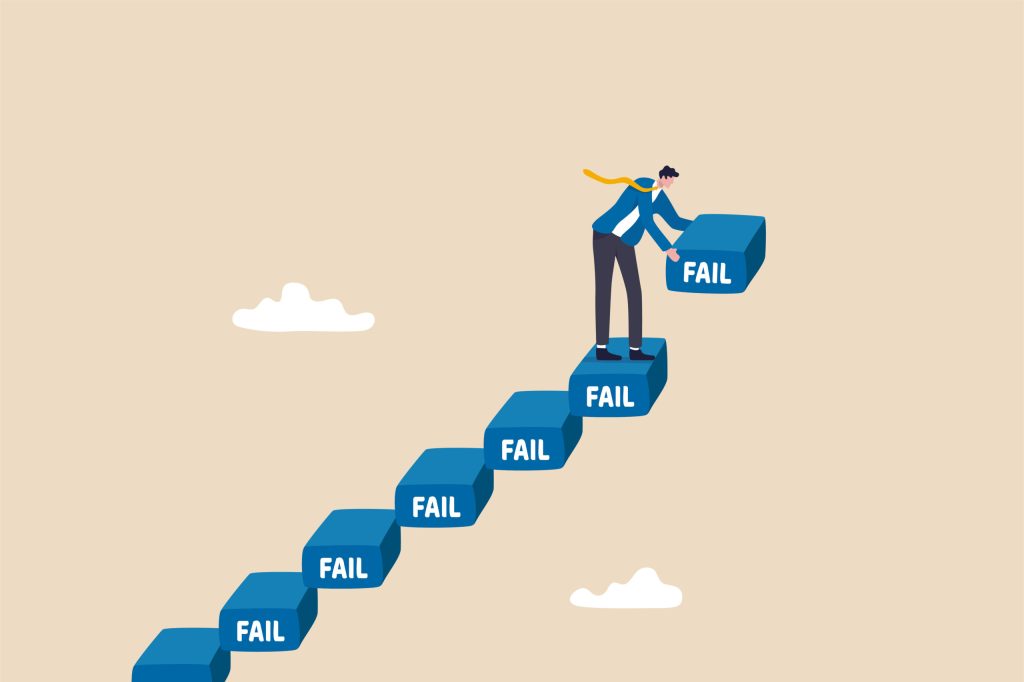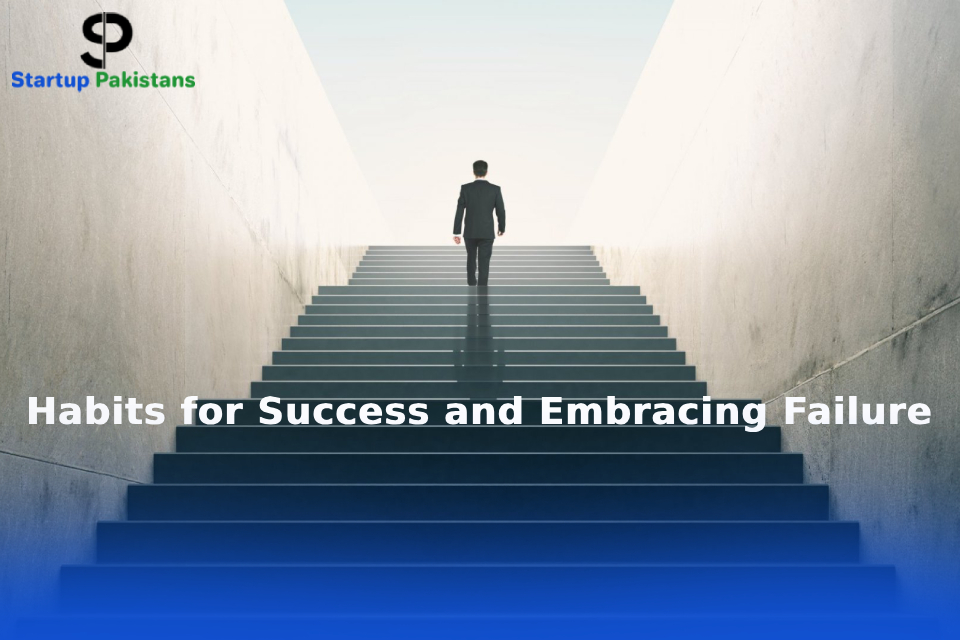The Importance of Habits for Success
Success is not just a result of luck or talent but a product of consistent habits and actions. Habits shape our daily lives, determine our outcomes, and ultimately define our success. Successful individuals understand the power of habits and consciously cultivate those that align with their goals.
One of the key habits that successful people develop is setting clear goals. By defining what they want to achieve, they create a roadmap for success. These goals serve as a compass, guiding their actions and decisions. Moreover, successful individuals prioritize their goals, focusing their energy on what truly matters and avoiding distractions.
In addition to goal-setting, successful individuals practice discipline. They understand that success requires consistent effort and are willing to put in the work, even when it’s challenging. By maintaining a disciplined approach to their work and personal lives, they can stay focused, avoid procrastination, and progress towards their goals.
Another essential habit for success is maintaining a positive mindset. Successful individuals understand the power of positive thinking and its impact on their outcomes. They choose to see obstacles as opportunities and setbacks as learning experiences. By maintaining a positive attitude, they are able to overcome challenges and bounce back stronger than ever.
Common Habits of Successful People
Successful individuals share certain habits that contribute to their achievements. One such habit is continuous learning. They understand that knowledge is power and make a conscious effort to acquire new skills and expand their horizons. Whether it’s through reading, attending seminars, or seeking mentorship, they constantly invest in their personal and professional growth.
Another habit that successful people adopt is effective time management. They understand that time is a finite resource and prioritize their tasks accordingly. By focusing on high-value activities and delegating or eliminating low-value tasks, they are able to maximize their productivity and achieve more in less time.
Successful individuals also prioritize self-care. They understand the importance of taking care of their physical, mental, and emotional well-being. They make time for exercise, proper nutrition, and adequate rest, knowing that a healthy body and mind are essential for peak performance.

How to Develop New Habits for Success
Developing new habits can be challenging, but it is not impossible. Following certain strategies can increase your chances of successfully adopting new habits.
Firstly, start small. Break down your desired habit into smaller, manageable steps. For example, if you want to develop a daily meditation habit, start with just a few minutes each day and gradually increase the duration over time. Starting small builds momentum and increases the likelihood of long-term success.
Secondly, make your habits visible. Create reminders and cues that prompt you to take action. For example, if you want to exercise in the morning, lay out your workout clothes the night before as a visual reminder. Making your habits visible makes it easier to follow through and stay consistent.
Thirdly, hold yourself accountable. Find an accountability partner or join a community that shares the same habit goals. Having someone to report to and share your progress with increases your commitment and motivation to stick to your habits.
The Power of Consistency
Consistency is key to achieving success. Your daily commitment to your habits and actions leads to long-term results. Successful individuals understand the power of consistency and make it a priority in their lives.
Consistency builds momentum. You create a positive feedback loop that propels you forward by showing up every day and taking small steps toward your goals. Each small win reinforces your belief in yourself and your ability to succeed.
Consistency also builds discipline. You train your mind and body to follow a certain pattern by repeatedly engaging in the same actions. Over time, these actions become second nature, making it easier to maintain your habits even when faced with challenges or distractions.
Moreover, consistency builds trust and credibility. When you consistently deliver on your promises and commitments, you earn the trust of others. This trust opens doors for opportunities and collaborations that can further accelerate your success.
Overcoming Obstacles and Embracing Failure
Obstacles and failure are inevitable on the journey to success. However, successful individuals view them as opportunities for growth rather than roadblocks. They understand that failure is not the end but a stepping stone towards success.
Failure provides valuable lessons. It teaches us what doesn’t work and forces us to find alternative solutions. Successful individuals embrace failure as a chance to learn, adapt, and improve. They analyze their failures, identify areas for improvement, and use this knowledge to make better decisions in the future.
Furthermore, failure builds resilience. It tests our ability to bounce back from setbacks and continue pursuing our goals. Successful individuals understand that failure is not a reflection of their worth or potential; it is a natural part of the journey. They use failure as fuel to propel themselves forward, refusing to let it define their ultimate success.

The Role of Failure in Personal Growth
Failure is not a sign of weakness; it is a catalyst for personal growth. It pushes us out of our comfort zones, challenges our limits, and forces us to adapt. Successful individuals recognize that personal growth often happens outside of our comfort zones and embrace failure as a necessary part of the process.
Failure builds character. It teaches us resilience, perseverance, and determination. It strengthens our problem-solving skills and our ability to adapt to changing circumstances. By embracing failure, we become more adaptable and better equipped to handle the challenges that come our way.
Moreover, failure fosters innovation and creativity. When our initial attempts fail, we are forced to think outside the box and explore alternative solutions. This mindset shift often leads to breakthroughs and new opportunities that we wouldn’t have discovered otherwise.
Strategies for Learning from Failure
To make the most of failure, it is important to approach it with a growth mindset and adopt certain strategies for learning.
Firstly, reflect on your failures. Take the time to analyze what went wrong and why. Look for patterns or recurring mistakes that you can learn from. Ask yourself what you could have done differently and how to apply these lessons to future endeavors.
Secondly, seek feedback from others. Sometimes, we are too close to our failures to see the bigger picture. By seeking input from trusted mentors, peers, or colleagues, we gain valuable perspectives and insights that can help us learn and grow.
Thirdly, don’t dwell on failure. While reflecting and learning from our failures is important, it’s equally important not to get stuck in a cycle of self-doubt or negativity. Acknowledge your failures, accept them as part of the journey, and focus on the future. Use failure as motivation to keep moving forward and striving for success.

Developing a Growth Mindset for Success
A growth mindset is essential for success. It is the belief that our abilities can be developed through hard work, dedication, and a willingness to learn. Successful individuals cultivate a growth mindset, which allows them to embrace challenges, persist in the face of setbacks, and ultimately achieve their goals.
To develop a growth mindset, start by reframing failure as a learning opportunity. Instead of viewing failure as a reflection of your abilities, see it as a chance to grow and improve. Embrace challenges and setbacks as stepping stones toward success, knowing that each failure brings you closer to your goals.
Moreover, focus on the process rather than the outcome. Successful individuals understand that success is not just about the end result; it’s about the journey. By focusing on the progress you’re making, the skills you’re acquiring, and the lessons you’re learning along the way, you cultivate a growth mindset that fuels your personal and professional development.
Cultivating Resilience and Perseverance
Resilience and perseverance are essential qualities for success. They have the ability to bounce back from failure, overcome obstacles, and keep going despite setbacks. Successful individuals cultivate resilience and perseverance, knowing they are the keys to achieving their goals.
To cultivate resilience, build a support system. Surround yourself with people who believe in you and your abilities. Seek guidance and encouragement from mentors or coaches who have overcome challenges themselves. A strong support system can provide the motivation and reassurance you need to stay resilient in adversity.
Perseverance requires a clear vision and a strong sense of purpose. Define your why – why do you want to achieve your goals? What is the bigger purpose behind your actions? When you have a clear vision and a strong sense of purpose, you can tap into a deep well of motivation and determination that will keep you going, even when the going gets tough.
Conclusion: Embracing Failure as a Stepping Stone to Success
Success is not a destination; it is a journey. It is a culmination of habits, mindset shifts, and a willingness to embrace failure as a stepping stone toward greatness. By adopting the habits of successful individuals, such as goal-setting, discipline, and a positive mindset, you can pave the way for personal and professional success.
Remember, failure is not the end; it is an opportunity for growth. Embrace failure, learn from it, and use it as fuel to propel yourself forward. Cultivate a growth mindset, develop resilience and perseverance, and trust in the power of consistency. Doing so will enable you to overcome obstacles, achieve your goals, and ultimately create a successful and fulfilling life.
So, whether you’re just starting out on your journey or looking to level up your success game, start by adopting these essential habits and mindset shifts. Embrace failure as a catalyst for growth, and trust that success is within your reach. With dedication, perseverance, and a commitment to personal growth, you can achieve greatness and create a life of success and fulfillment.
Author:
This Article is written and Researched by Sheza Kanwal, a Human Resource Expert and a Certified Leading Diverse Teams and organizations from the University of Michigan, United States.




 Unlocking a New Era in Children’s Fashion: MomYom and PatPat Combine Strengths in Game-Changing Partnership in Pakistan
Unlocking a New Era in Children’s Fashion: MomYom and PatPat Combine Strengths in Game-Changing Partnership in Pakistan  Ultimate Guide to Skincare: Expert Tips for Beautiful Skin Care 2023
Ultimate Guide to Skincare: Expert Tips for Beautiful Skin Care 2023  <strong>Best Pillow for Neck Pain: Here Is What You Need to Consider</strong>
<strong>Best Pillow for Neck Pain: Here Is What You Need to Consider</strong>